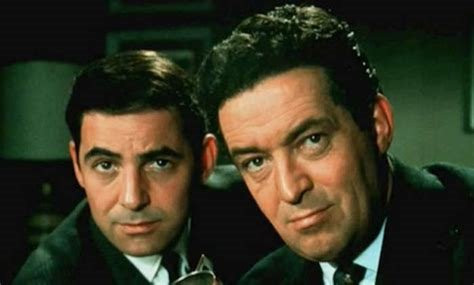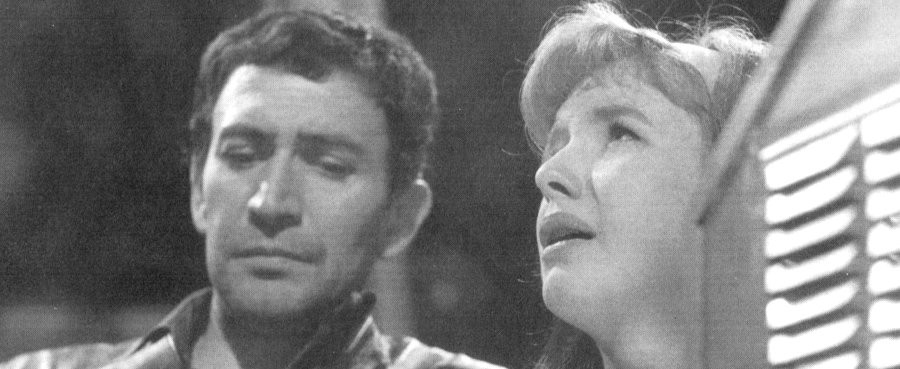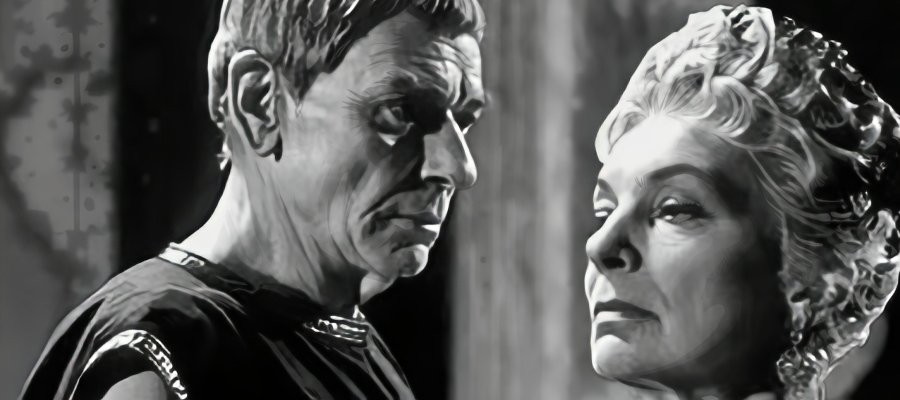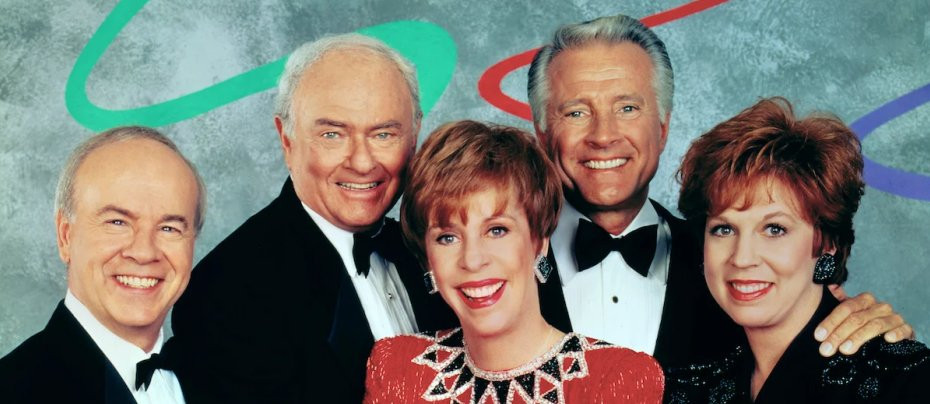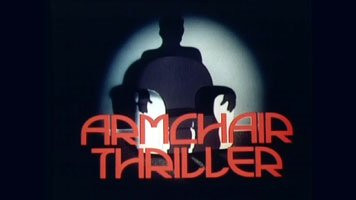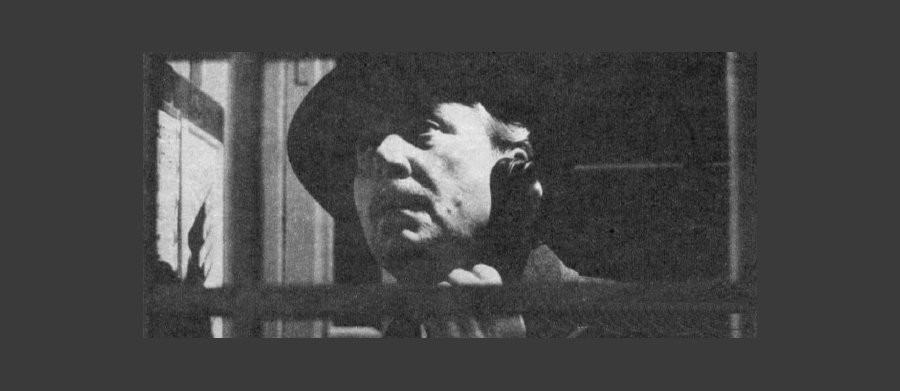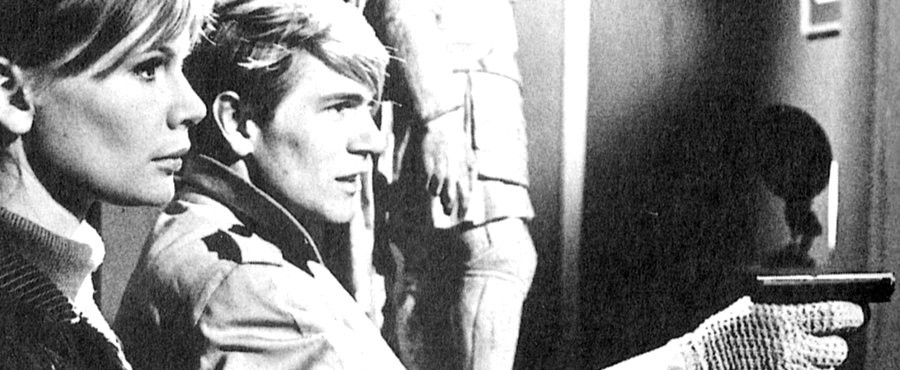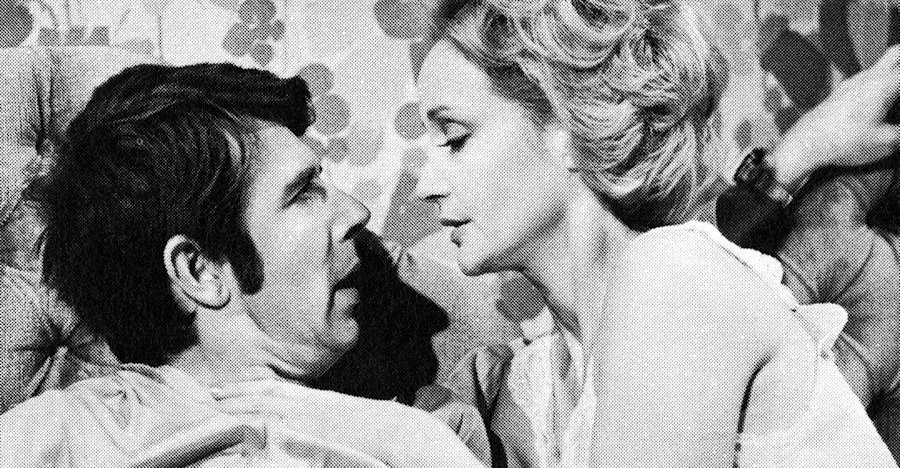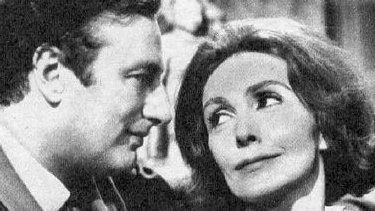
ABC Armchair Thriller
1967 - United KingdomThe title Armchair Theatre had been familiar to television viewers since 1956. But whereas the original Armchair Theatre was more commonly known for its kitchen sink dramas, the 1967 series of ABC Armchair Thrillers introduced stories with a more fictionalised dramatic element, often involving a character trapped in a frightening situation or faced with a moral dilemma over which they have little or no control. The later Armchair Thriller series featured stories told over the course of either four or six episodes, but the original series, reviewed here, were one-off plays of around 60 minutes.
In the first story, Will You Come A Little Closer? by Roger Marshall, bachelor John Dolby (Freddie Jones) invites a salesgirl, Deanna Ward (Caroline Mortimer) into his home. Deanna has only taken this job after being advised to by her doctor as a way to overcome her shyness. At first Dolby makes his somewhat nervous and repressed visitor feel at home. He takes her wet shoes to dry, questions her about her job, her friends and relations, and offers advice on her appearance. But things take an unexpected turn when Dolby reveals a sinister obsession he has against authority. And it becomes quite clear that he will go to any lengths to "get his own back." Marshall slowly builds up this psychological thriller as we see an uneasy awareness dawn on the girl that she is being ensnared.
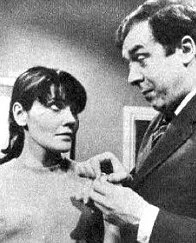
Story two is Julian Bond's England My England (see main picture). Maggie Leeds (Rachel Gurney) - the mother of two children, the wife of a successful business man - looks forward to celebrating her birthday with her family. The postman brings presents, the delivery boy brings flowers, but Superintendent O'Leary (Hugh Burden) brings quite a different surprise: evidence that Maggie's husband of 19 years, Steve (Paul Eddington), is a spy who has been secretly passing on information to a foreign power. In order to prove Steve's innocence, Maggie agrees to co-operate with the police officer. She realises that someone is lying to her, but who? And if she has to choose-where will her loyalties lie: With husband or country?
In The Name of the Law, the third play in the series, written by novelist and film writer Jack Trevor Story, three crooks-Freddie (William Lucas), Ralph (Timothy West) and Michael (Murray Hayne)-disguised as policemen plan to rob Nick's Nosh Bar, an all-night transit café with a safe stacked full of money. But their plan begins to come apart when a shot is fired in the café by a third party and the gang are left no alternative but to deal with the incident as real police officers. As well having to avoid bullets and detection the gang are left with a moral dilemma: When it comes to murder, might it only be the uniform that separates a villain from a policeman? William Lucas is probably best known for his role in Yorkshire Television's 1972 series The Adventures of Black Beauty. Murray Hayne was a familiar face on British television appearing in numerous productions between 1958 and 1981. Timothy West spent many years as a character actor who never quite became a household name until his big in the major television series, Edward the Seventh. In The Name of the Law also starred an Oriental actress by the name of Jacqui Chan (pictured). Interviewed for the TV Times in 1967, Chan, who was born in Trinidad to Chinese parents and came to England to study ballet, said: "I look Chinese although I have a ridiculously pale, un-yellow complexion, bleached out, I think, by so many English winters! And I don't want to alter the way I am. But I am many generations removed from China-I feel and think Western. So I would like to play parts with more depth and scope." Chan continued to appear on our screens showing up in shows like The Chinese Detective (1982) and Sherlock (2010). In 2010 she became the executive producer of the popular children's series Bananas in Pyjamas as well as the teenage fantasy series A Gurls Wurld (aka Emma's Chatroom and Cyber Girls); a Singapore, Australia and Germany co-production, that, at the time of writing, has not been broadcast in the UK.
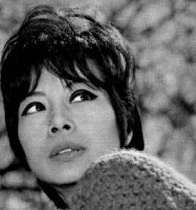
John Gregson and Syvia Syms starred in the fourth play, Depart in Terror. In it, Gregson plays Harvey Lynch, who is having an affair with housewife Mary Fleming (Syms). Mary's husband Dennis (George A. Cooper) who is so timid he wouldn't hurt a fly-or so his wife believes-finds out. Dennis is a wizard with electronic gadgets. He determines to get his revenge with an ingenious plan. Dennis may not hurt a fly but he takes an entirely different attitude towards the lovers. Gregson had become a household name in the UK as Scotland Yard Commander George Gideon in the popular police drama series Gideon's Way. When TV Times reporter Colin Anderson caught up with Gregson for an article in 1967 he noted a supply of splints and gauze bandages being prepared for the actor by a posse of first-aid men. "Terror was the word for it," said Gregson of the finale to the play. "There I was clinging desperately to a couple of planks 10ft up, negotiating a sort of fiendish obstacle course. I guarantee even Commander Gideon would have been pushed to keep calm in that situation."
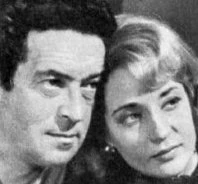
The fifth play, The Snares of Death, is a black comedy by Stanley Miller. Set in 1919 it stars Alfred Burke as funeral director Harold Gabbitas who finds that his shabby little business in a small town is a little less than lucrative. Wondering how long he can continue to make a living, Gabbitas thinks he can solve his problems by faking his own death with the help of a forged death certificate and then claiming the insurance money. But the plan takes a macabre twist when his assistant Rupert (Richard O'Callaghan), who has been having an affair with the bosses' wife (Alethea Charlton), sees an opportunity. Burke was b y this time a familiar face to television viewers as down-at-heel private detective Frank Marker in Public Eye, which had been produced by ABC Television since 1965.
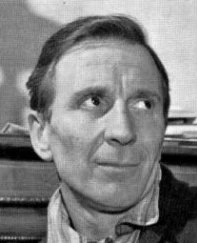
The five ABC Armchair Theatre productions ran from 22 April to 20 May 1967 on Saturday night around 10.5pm. The series producer was Richard Bates, son of author H. E. Bates. It's likely that the reason there wasn't an immediate second series was because of the change of franchises the following year. But it was over a decade before Thames television revived the title for a series of one-off stories.
Seen this show? How do you rate it?
Seen this show? How do you rate it?
Published on November 26th, 2018. Marc Saul (2008).


